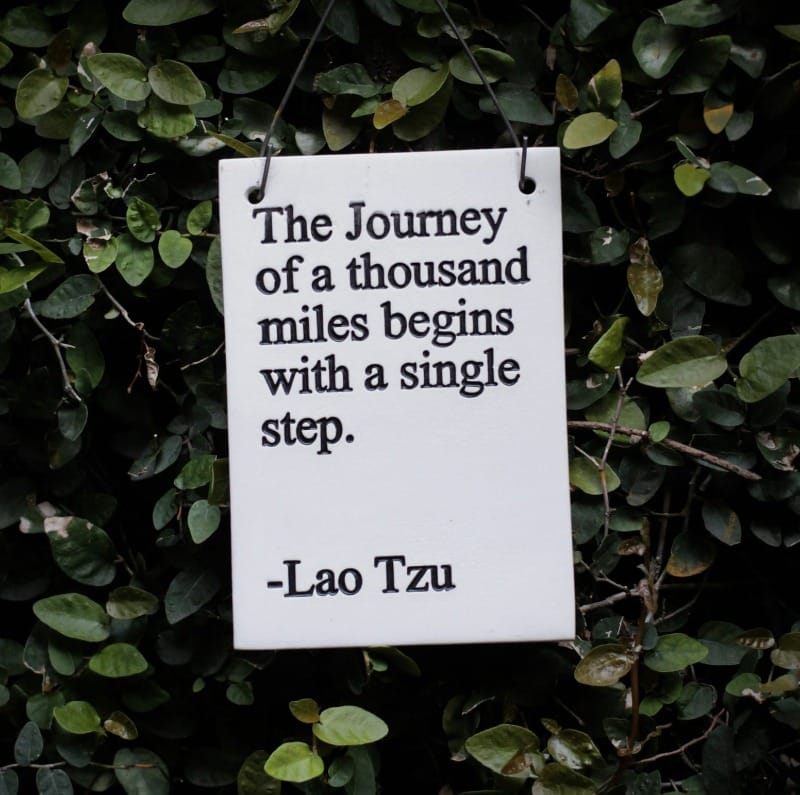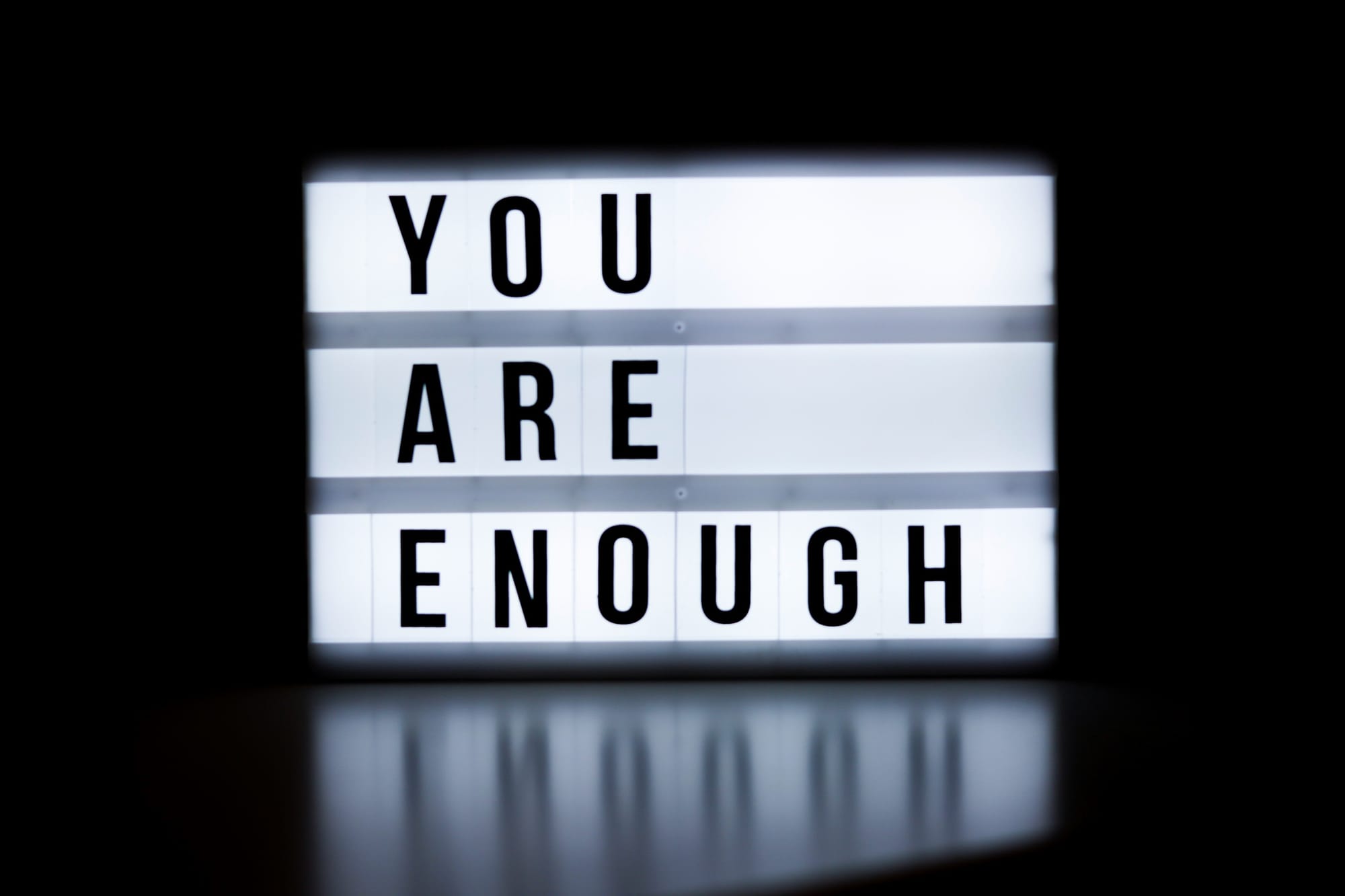Compromise vs. Sacrifice

I often say the wrong thing at the wrong time. I can see it in the face of the person I'm talking to when teasing or attempting to poke the bear lands flat.
What I said strikes a raw nerve. They feel hurt, less of themselves, and defensive.
I'm in the wrong, but I stubbornly push forward. I believe in my right to self-expression and no harm, no foul, right?
If my intention was good, why should a negative outcome matter?
Because it matters.
Why do people have raw nerves?
First, the elephant in the room is the sentiment that it's not my fault. Why does this matter so much to them? Where did that landmine I just stepped on come from?
Remember, it's not you, it's them.
Reasons for the Upset
- Silenced opinions. People cannot express themselves openly and in a safe space because of differing views and a real fear of judgment. They've been keeping this in for a long time; it's a sentiment that has been growing. It's not a big deal or acceptable to raise.
- Low self-esteem. Though you think the world of them, they don't believe that of themselves. They do not feel heard. They do not feel seen. They may seem confident, but there's a shaky foundation that's being hidden by bravado. They are ruled by internalized limiting beliefs.
- Envy, jealousy, missed opportunities. Walking a different path means making decisions based on safety, opportunity, and timing. Your paths have deviated, and there are paths left abandoned. Disregarding the circumstances leading to the deviation between your life choices. An oversimplification of your situation or theirs.
- Judgement. Either of themselves or others. Often, this is an internalized judgment relating to low self-esteem. It can also be religious, political, internalized biases, and prejudice born from culture, life experience, and wealth status.
- Experience. Conditioning of a partner, friend, or parent led that person to internalize their limiting beliefs. A fear of becoming like another. Alarms and whistles signal the start of a bad interaction, so they bail. Even if you are not that other person. You are guilty of copying the behaviour of someone who once hurt them.
Compromises that are Sacrifices
IF the relationship is important, you apologize and pull back out of compassion.
A compromise could be as simple as saying 'sorry' and walking away. Yet, our ego-driven instinct is to become defensive in response and escalate the conflict.
Because you feel hurt too, you did nothing wrong, your intention was not to hurt.
My apologies are often accompanied by a justification. This leads to further escalation.

Why the need to justify our words?
As an act of compromise, we acknowledge the hurt we have caused and give our companion space.
But we're not really sorry.
Avoidance of 'rocking the apple cart' or starting a fight
What happens next is that you, the people pleaser, will walk on eggshells. Avoid topics X, Y, and ABC because you may hit a nerve. You're sacrificing your safe space to accommodate the other. Your safe space is gone, replaced by a field of landmines. You're paranoid you'll step in another one.
So, knock over the apple cart?
My belief is that the actual compromise is to get uncomfortable and express your point of view, even if it leads to a heated discussion.
THE REAL COMPROMISE: It falls to your companion to accept your view as you have accepted theirs.
Where both people involved in the conversation are coming to a mutually agreeable discomfort.
The apple cart was knocked over, let's smile and pick up the apples so we can knock it over again, another day.
Why not sacrifice yourself and keep the apple cart intact?
Sacrificing your freedom to say the wrong thing or poke the bear, goes against the grain of growth in friendship.
How can your relationship prosper and grow if you can never test the limitations of your interactions? If you must curb your behaviour whenever the other is upset or has a pinched nerve that may have nothing to do with you? If someone is so sensitive and does not believe your friendship is true, then is that a relationship worth having?
When is it right to sacrifice?
Ask yourself, how will I feel in ten years. Will I laugh at this or will I have grown irritated?
Believe me: All sacrifices are accompanied by resentment and regret. All of them.
Why? Ask any parent–the sacrifices go unseen to those who benefit.
I'm not saying not to sacrifice yourself but if you are sacrificing yourself you have to do so in religious sense of submission. You are immersing yourself in an experience that you have given up all control over. You can no longer back out and say, no-this is not what makes me comfortable.
You have to go all in.
Sacrifices aren't trivial.
You shouldn't sacrifice yourself over a minor disagreement. Even tiny sacrifices build up resentment with time. Ask two people who have been married for 50 years what irritates them. They will talk about the smallest of sacrifices made over a lifetime that now carry the weight of Mt. Everest.
Examples
Your wife wants to bring home a dog. How will you, the husband feel in ten years? --> This is a sacrifice you are making knowing your wife is dependent on having four legged furries in the house. The pet will live 16 years, and yes you will have to walk it and feed it and pay for its vet bills. However, you will also laugh and share on many long walks with your wife. Your health will be strained because of the stress of the dog's antics. She MUST acknowledge you and give you room to voice your grievances and gripes. She must compromise knowing your sacrifice.
The sacrifice you made, can bring you closer together or be a knife wedging you apart. When you sign your divorce papers you realize, if only I had said no to the dog, this would have happened sooner with less fuss.
You start a heated discussion around politics with a long-time friend. You are a Tory but your friend is a Grit. The conversation goes downhill as you both become agitated yelling slogans across a silent text conversation. --> This leads to an opportunity to compromise. You decide politics are taboo. She can be a Grit. You can be a Tory. You are both wise and enlightened in your beliefs. In ten years time there'll be another election, new issues, and while it's interesting to hear the other person's point of view, there's no point if its going to make either of you feel less.
Ultimately, the compromise you made, will bring you closer together. You both acknowledge what matters is feeling safe and not attacked. Mutual respect for differing views. Agree to disagree. When politics come up, remain silent.
All relationships depend on compromises and sacrifices for growth.
Its not fair to expect one person to apologize and edit their behaviour if you aren't coming half way. When there's no room for compromise or sacrifice, then you must decide if the relationship is of value. When one person is always hurt, always in the wrong, or always having to sacrifice or filter their thoughts (while the other doesn't), then it's imbalanced.
Toxicity in Relationships
When one partner must repeatedly compromise or make sacrifices for the other an imbalance occurs. Think about Stephen Hawking and the experiences of Jane Hawking as illustrated in the movie "The Theory of Everything." Jane makes compromise after compromise until it becomes real sacrifice. Their open relationship gives her some respite but in the end, Stephen leaves her for Elaine. Is this a toxic relationship or one that was based on love? The two individuals move further and further apart as a result of the compromises and sacrifices made in the name of staying together.
Individuality is triumphant. You grow apart. Your relationship fades in favour of relationships with people with whom you do not have to compromise or sacrifice.
There has to be a check and balance on compromises and sacrifices. Ultimately, it has to be two ways. One person acknowledging and valuing the sacrifice of the other. Too often, we are so wrapped up in our perception and experience of everything--that we are blind to the sacrifice the other has made.
I am guilty.
A Better Friendship
The hero's journey ends when he/she has learned something from the experiences of their journey and as an individual, they are now in a different (hopefully better) state.
If you're sitting in a friendship and feeling like you're the only one giving, there's an imbalance. Think about what keeps you running after that person. Find and meet other people who vibe with you and compare how you feel after an exchange or interaction.
Meanwhile, if you are failing to acknowledge the sacrifice of a friend or partner, be sure to allow them a voice to express their frustration. Be open to seeing the world from their perspective, alien though it may be.
If the timing isn't right, be sure to find a time to reconnect. You may have been in the wrong but the person who was wronged will not chase after you.
Be grateful.
I am grateful to friends who forgive my gaffs and realize when I've put my foot in it with no intention of making them feel slighted or small.
To the friends who will remain to the day I die, they will need to continue to forgive and forget these unintended slights and confusions.
I will listen and I will be humble and chastised BUT I will never be able to stop putting my foot in it.
Subscribe to my newsletter or follow me on social media.
Read more like this










Member discussion